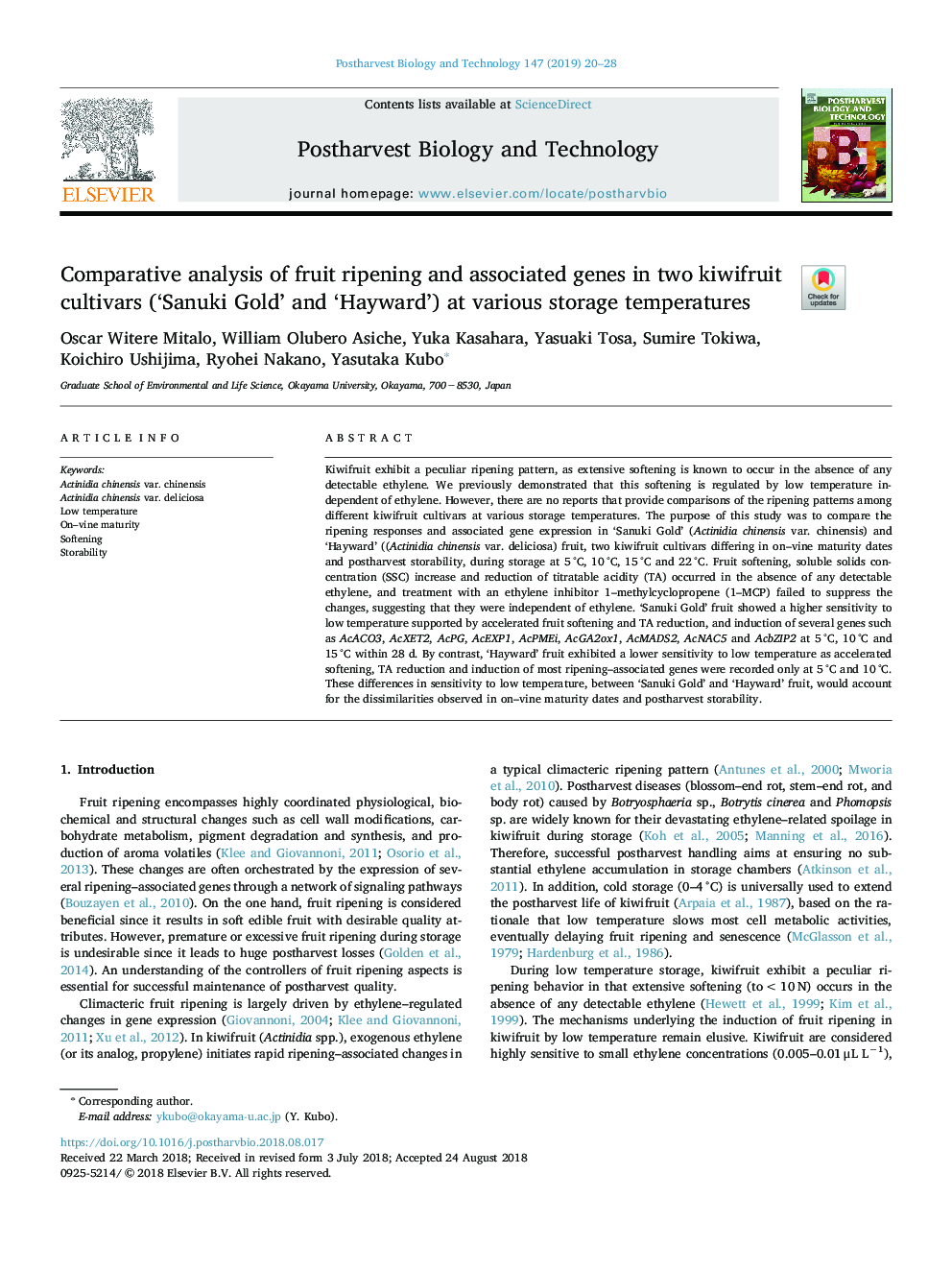| Article ID | Journal | Published Year | Pages | File Type |
|---|---|---|---|---|
| 10223757 | Postharvest Biology and Technology | 2019 | 9 Pages |
Abstract
Kiwifruit exhibit a peculiar ripening pattern, as extensive softening is known to occur in the absence of any detectable ethylene. We previously demonstrated that this softening is regulated by low temperature independent of ethylene. However, there are no reports that provide comparisons of the ripening patterns among different kiwifruit cultivars at various storage temperatures. The purpose of this study was to compare the ripening responses and associated gene expression in 'Sanuki Gold' (Actinidia chinensis var. chinensis) and 'Hayward' ((Actinidia chinensis var. deliciosa) fruit, two kiwifruit cultivars differing in on-vine maturity dates and postharvest storability, during storage at 5â°C, 10â°C, 15â°C and 22â°C. Fruit softening, soluble solids concentration (SSC) increase and reduction of titratable acidity (TA) occurred in the absence of any detectable ethylene, and treatment with an ethylene inhibitor 1-methylcyclopropene (1-MCP) failed to suppress the changes, suggesting that they were independent of ethylene. 'Sanuki Gold' fruit showed a higher sensitivity to low temperature supported by accelerated fruit softening and TA reduction, and induction of several genes such as AcACO3, AcXET2, AcPG, AcEXP1, AcPMEi, AcGA2ox1, AcMADS2, AcNAC5 and AcbZIP2 at 5â°C, 10â°C and 15â°C within 28 d. By contrast, 'Hayward' fruit exhibited a lower sensitivity to low temperature as accelerated softening, TA reduction and induction of most ripening-associated genes were recorded only at 5â°C and 10â°C. These differences in sensitivity to low temperature, between 'Sanuki Gold' and 'Hayward' fruit, would account for the dissimilarities observed in on-vine maturity dates and postharvest storability.
Keywords
Related Topics
Life Sciences
Agricultural and Biological Sciences
Agronomy and Crop Science
Authors
Oscar Witere Mitalo, William Olubero Asiche, Yuka Kasahara, Yasuaki Tosa, Sumire Tokiwa, Koichiro Ushijima, Ryohei Nakano, Yasutaka Kubo,
